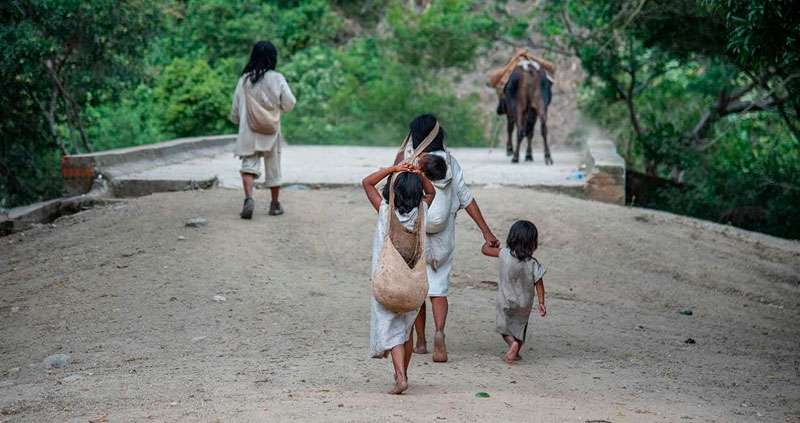Generating peace-building attitudes and guaranteeing that acts of war are not repeated, in addition to facilitating content creators who expand from the territory the testimonies and documents of the Report of the Truth Commission, is the objective of the diploma “Weaving peace , the good life and the sustainability of the legacy of the Commission for the Clarification of the Truth (CEV)”, addressed to the students of the Kankuamo indigenous people and to the students of the National University of Colombia (UNAL) Headquarters of La Paz.
“Weaving peace” and “good living” are concepts that, within the way of seeing the world by indigenous nations, allow us to understand the harmonious relationship that exists between the environment, the individual and the territory, based on a quality of life that is not governed by the production and welfare systems of the development model but by the guidelines of the Law of Origin. Building peace is part of good living.
Yusmidia Solano, a teacher at the UNAL Headquarters in La Paz, points out that this space seeks to train CEV heirs, generate peacebuilding attitudes and guarantee that acts of war are not repeated, in addition to facilitating content creators who expand from the territory the testimonies and documents of the CEV Report.
It should be noted that at least 453,018 indigenous people were victims of violent actions in the country such as confinement, forced displacement and harassment, according to the most recent human rights report from the National Indigenous Organization of Colombia (ONIC). In 2022, 42 indigenous leaders were assassinated.
Faced with this situation, in the volume entitled “Resisting is not enduring, violence and damage against the ethnic peoples of Colombia”, of the Final Report delivered by the CEV, the findings are related to the violence that for generations has affected the communities, cultures and territories of the ethnic peoples in Colombia.
The document exposes, among other findings: colonial treatment and structural racism as one of the historical violence suffered by ethnic communities, which were naturalized and justified in speeches and practices by the actors of the armed conflict; the invisibility that these peoples have suffered and has truncated access to their rights and recognition of their reality; the serious affectations to the survival and cultural identity as peoples; and the invasion of the territories, the subjugation, displacement and exile of the communities.
ABOUT THE DIPLOMA
The diploma course, which began on June 26 and will end on July 30, is carried out completely virtually. 85% of the students are from the Kankuamo indigenous people and 15% are students from the UNAL Headquarters in La Paz.
“The modality is asynchronous, which means that the diploma students will be able to manage their own times and learn at their own pace, doing autonomous learning, through the Classroom platform, where they will find educational content and resources available such as videos, infographics and documents, among others”, said the investigator Solano.
The idea is that at the end of the course, the participants will be able to analyze, appropriate and socialize the legacy of the final report of the CEV. They will also be able to replicate some of the experiences through the use and exploration of digital content, so that, as heirs and heirs, they promote commitments towards the implementation of their recommendations.
Among the contents of this initiative are: stories of victims and those responsible with a perspective of how the violence affected their daily lives; the periods of the Colombian conflict, the milestones that have marked history and the key explanations for this evolution, as well as the factors that persist until today.
In the same way, it is contemplated to explain the local dynamics of the armed conflict in different regions of the country and to analyze its impacts on ethnic peoples. A second version of the course is planned for August, but with a focus on women.
